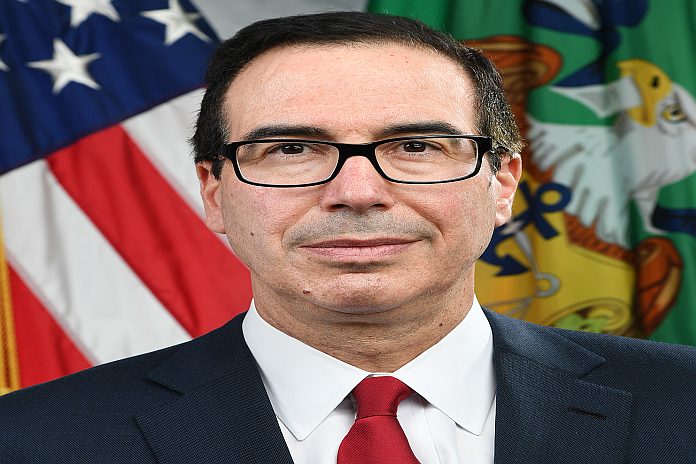WASHINGTON, USA – The US Department of the Treasury’s Office of Foreign Assets Control (OFAC) yesterday, sanctioned one Chinese government entity and four current or former government officials in connection with serious rights abuses against ethnic minorities in the Xinjiang Uyghur Autonomous Region (XUAR).
These designations include Chen Quanguo, the Communist Party Secretary of XUAR, and Zhu Hailun, a former deputy party secretary of the XUAR. Also designated is the Xinjiang Public Security Bureau (XPSB), as well as the current director and communist party Secretary of the XPSB, Wang Mingshan, and the former party secretary of the XPSB, Huo Liujun.
The entity and officials are being designated for their connection to serious human rights abuse against ethnic minorities in Xinjiang, which reportedly include mass arbitrary detention and severe physical abuse, among other serious abuses targeting Uyghurs, a Turkic Muslim population indigenous to Xinjiang, and other ethnic minorities in the region.
“The United States is committed to using the full breadth of its financial powers to hold human rights abusers accountable in Xinjiang and across the world,” said Secretary Steven T. Mnuchin.
This action is being taken pursuant to Executive Order (E.O.) 13818, “Blocking the Property of Persons Involved in Serious Human Rights Abuse or Corruption,” which builds upon and implements the Global Magnitsky Human Rights Accountability Act.
These designations are the latest US government actions in an ongoing effort to deter human rights abuses in the Xinjiang region. On July 1, 2020, the US Department of State, along with the US Department of the Treasury, the US Department of Commerce, and the US Department of Homeland Security, issued the Xinjiang Supply Chain Business Advisory, advising businesses with potential supply chain exposure to Xinjiang to consider the reputational, economic, and legal risks of involvement with entities that engage in human rights abuses in Xinjiang, such as forced labor.
On May 22, 2020, the US Department of Commerce added nine PRC entities related to human rights abuses in the Xinjiang region to the Commerce Entity List; this action complemented the October 2019 addition to the Commerce Entity List of 28 entities engaged in the PRC repression campaign in the Xinjiang region.
Also, in October 2019, the US Department of State announced a visa restriction policy under section 212 (a)(3)(C) of the Immigration and Nationality Act for PRC and Chinese Communist Party (CCP) officials responsible for, or complicit in, human rights abuses in Xinjiang.
Sanctions implications
As a result of this action, all property and interests in property of the entity and individuals named above, and of any entities that are owned, directly or indirectly, 50 percent or more by them, individually, or with other blocked persons, that are in the United States or in the possession or control of US persons, are blocked and must be reported to OFAC. Unless authorized by a general or specific license issued by OFAC or otherwise exempt, OFAC’s regulations generally prohibit all transactions by US persons or within (or transiting) the United States that involve any property or interests in property of designated or otherwise blocked persons.
The prohibitions include the making of any contribution or provision of funds, goods, or services by, to, or for the benefit of any blocked person or the receipt of any contribution or provision of funds, goods or services from any such person.
Global Magnitsky
Building upon the Global Magnitsky Human Rights Accountability Act, the president signed E.O. 13818 on December 20, 2017, in which the president found that the prevalence of human rights abuse and corruption that have their source, in whole or in substantial part, outside the United States, had reached such scope and gravity that it threatens the stability of international political and economic systems. Human rights abuse and corruption undermine the values that form an essential foundation of stable, secure, and functioning societies; have devastating impacts on individuals; weaken democratic institutions; degrade the rule of law; perpetuate violent conflicts; facilitate the activities of dangerous persons; and undermine economic markets.
The United States seeks to impose tangible and significant consequences on those who commit serious human rights abuse or engage in corruption, as well as to protect the financial system of the United States from abuse by these same persons.





